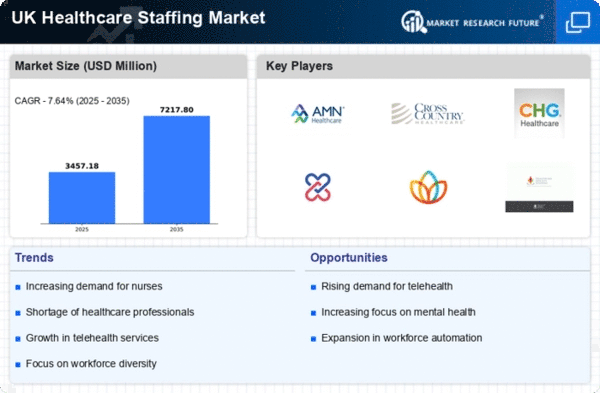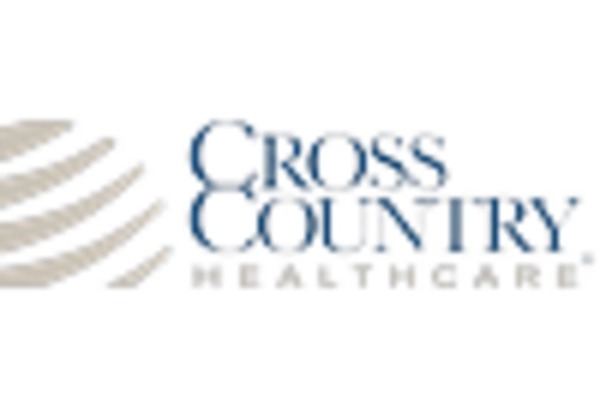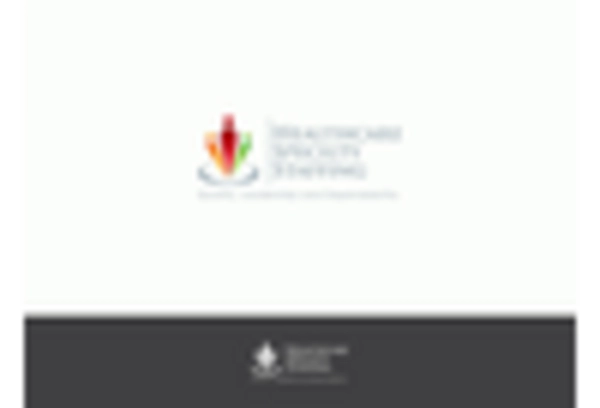Legislative Changes
Changes in healthcare regulations and policies significantly impact the healthcare staffing market. The UK government has introduced various reforms aimed at improving healthcare delivery, which often necessitates adjustments in staffing levels and qualifications. For instance, the introduction of new standards for healthcare professionals can lead to an increased demand for training and recruitment services. Additionally, compliance with these regulations may require healthcare facilities to hire more staff to meet the mandated ratios of healthcare workers to patients. This evolving regulatory landscape creates opportunities for staffing agencies to provide tailored solutions that align with the latest legislative requirements, thereby driving growth in the healthcare staffing market.
Workforce Shortages
The healthcare sector in the UK is currently facing significant workforce shortages, which is a critical driver of the healthcare staffing market. Reports indicate that the NHS is experiencing a shortfall of approximately 100,000 staff, which includes nurses, doctors, and allied health professionals. This shortage is attributed to various factors, including an aging workforce and challenges in recruitment and retention. As healthcare facilities struggle to fill these gaps, there is an increasing reliance on staffing agencies to provide temporary and permanent staff solutions. This reliance is likely to continue, thereby bolstering the healthcare staffing market as organizations seek to maintain quality care amidst staffing challenges.
Rising Healthcare Needs
The increasing demand for healthcare services in the UK is a primary driver of the healthcare staffing market. As the population ages, the need for medical care escalates, leading to a higher requirement for healthcare professionals. According to recent data, the number of individuals aged 65 and over is projected to rise by 23% by 2030, intensifying the demand for nursing and support staff. This demographic shift necessitates a robust staffing strategy to ensure that healthcare facilities can meet patient needs effectively. Consequently, healthcare providers are compelled to invest in staffing solutions that can adapt to fluctuating patient volumes, thereby propelling growth in the healthcare staffing market.
Technological Advancements
Advanced technologies are reshaping the healthcare staffing landscape. Innovations such as telemedicine and electronic health records are not only enhancing patient care but also influencing the types of roles required within healthcare settings. As facilities adopt these technologies, there is a growing need for staff who are proficient in using them. This shift is likely to create new job categories, thereby expanding the healthcare staffing market. Moreover, technology-driven recruitment platforms are streamlining the hiring process, making it easier for healthcare providers to find qualified candidates quickly. As a result, the healthcare staffing market is expected to evolve in response to these technological trends.
Increased Focus on Mental Health
The rising awareness of mental health issues in the UK is driving demand for specialized staffing in this area. As mental health becomes a priority for healthcare providers, there is a growing need for trained professionals who can deliver appropriate care. Recent statistics indicate that mental health services have seen a 15% increase in funding, reflecting the commitment to improving mental health care. This trend necessitates the recruitment of additional staff, including psychologists, counselors, and support workers, thereby expanding the healthcare staffing market. The emphasis on mental health not only addresses immediate patient needs but also fosters a more comprehensive approach to overall healthcare.

















